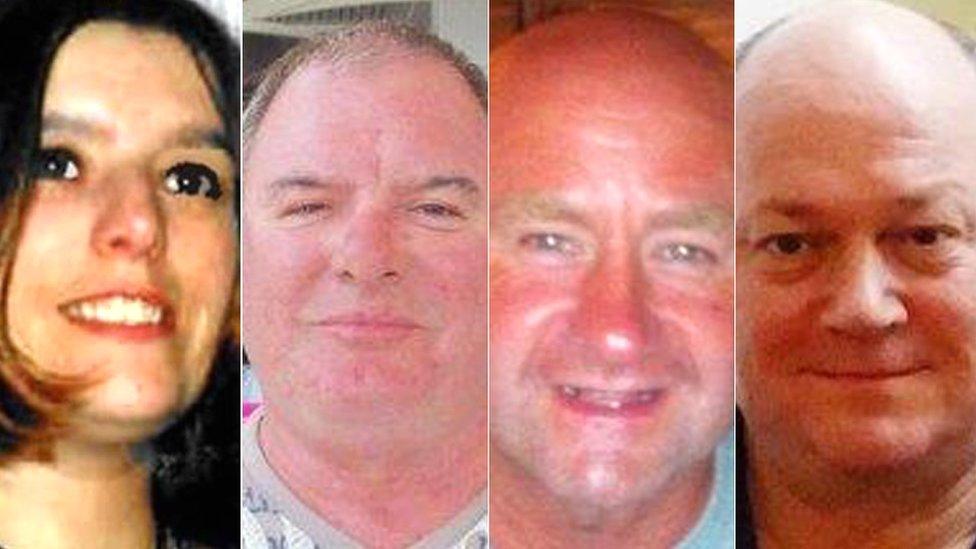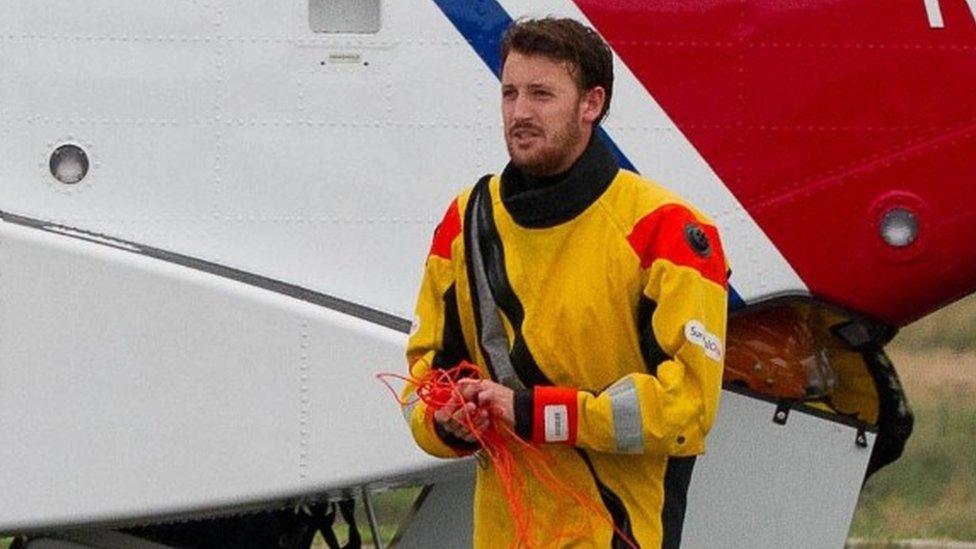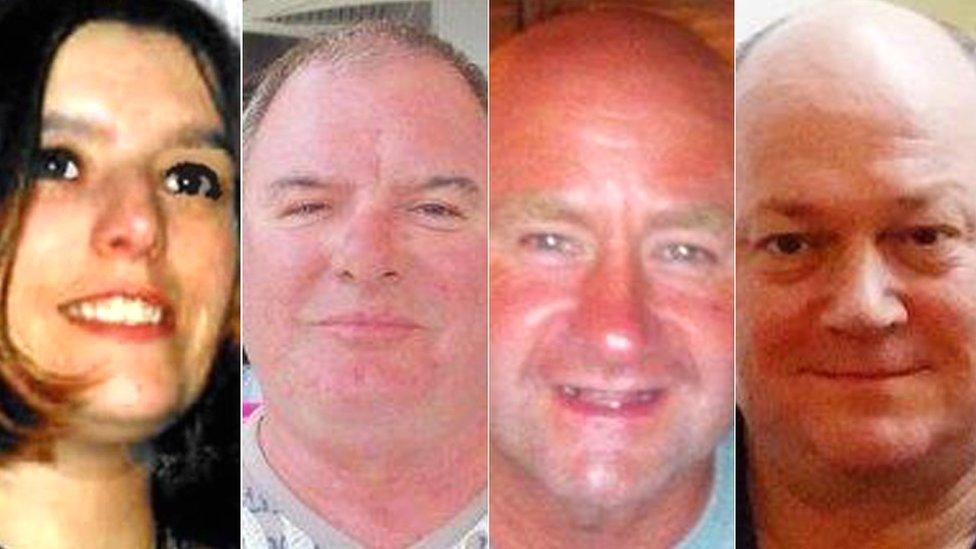Shetland Super Puma crash: Co-pilot's presence of mind 'saved lives'
- Published

The Super Puma overturned but did not sink
The bravery of the co-pilot in a helicopter crash off Shetland in which four people died helped to save lives, an inquiry has been told.
Super Puma passengers Sarah Darnley, 45, from Elgin, Gary McCrossan, 59, from Inverness, Duncan Munro, 46, from Bishop Auckland, and George Allison, 57, from Winchester, died in 2013.
Co-pilot Alan Bell armed the flotation bags just before the sea impact.
An expert witness told the inquiry he showed good presence of mind.
A total of 18 people had been on board.
Captain Alan Findlay, a helicopter pilot for 38 years, was a training captain with operator CHC.
Speaking from Australia, he told the ninth day of the fatal accident inquiry he had done training flights with Mr Bell to "show him the ropes", and said his level of knowledge was "very good".
The inquiry has heard how Mr Bell managed to arm the helicopter's flotation devices when he suddenly realised they were about to hit the water as they approached Sumburgh.
The helicopter overturned and filled with water, but stayed afloat.
Asked of the importance of the co-pilot's actions, Cptn Findlay said: "It saved people's lives effectively."
He said the flotation devices would not have deployed automatically and the aircraft would have sunk.
"In a very short period of time, realising things were going very badly wrong, he showed a good presence of mind", Cptn Findlay said.

Four people died in the 2013 crash
Derek Pyle, Sheriff Principal of Grampian, Highland and Islands who is overseeing the inquiry, said: "He was being very professional. Would you also describe it as brave?"
'Not unreasonable'
Cpt Findlay replied: "Yes. For most of us, faced with an impending crash, most people would want to hold onto something, whereas his frame of mind was he wanted to do something that would affect a successful outcome.
"It was brave and showed good presence of mind."
Cpt Findlay expressed concern about full use not being made of automated control functions on the approach, and said he had been told that was common practice.
Sheriff Principal Pyle asked if it was fair to say their approach was "not unreasonable".
He replied: "Yes, I can understand why the culture was there and was accepted."
Sheriff Principal Pyle asked if it was a genuine accident and if it became futile to try to identify an individual cause or individual who was ultimately responsible for it.
'World a safer place'
"Yes, I believe it was a genuine accident", he said.
"There were a lot of substantial changes made after this accident", he said. "Some good came out of it and the world is a safer place."
Sarah Darnley, Duncan Munro and George Allison drowned after the helicopter hit the water.
Gary McCrossan, who had cardiac disease, died from heart failure following the crash.
The inquiry has also heard that one survivor, Samuel Bull, who was believed to be 28, later took his own life after suffering post-traumatic stress disorder.
The inquiry, which was previously delayed due to coronavirus measures, continues.
- Published9 September 2020

- Published7 September 2020

- Published4 September 2020

- Published3 September 2020

- Published2 September 2020

- Published1 September 2020

- Published31 August 2020

- Published31 March 2020
